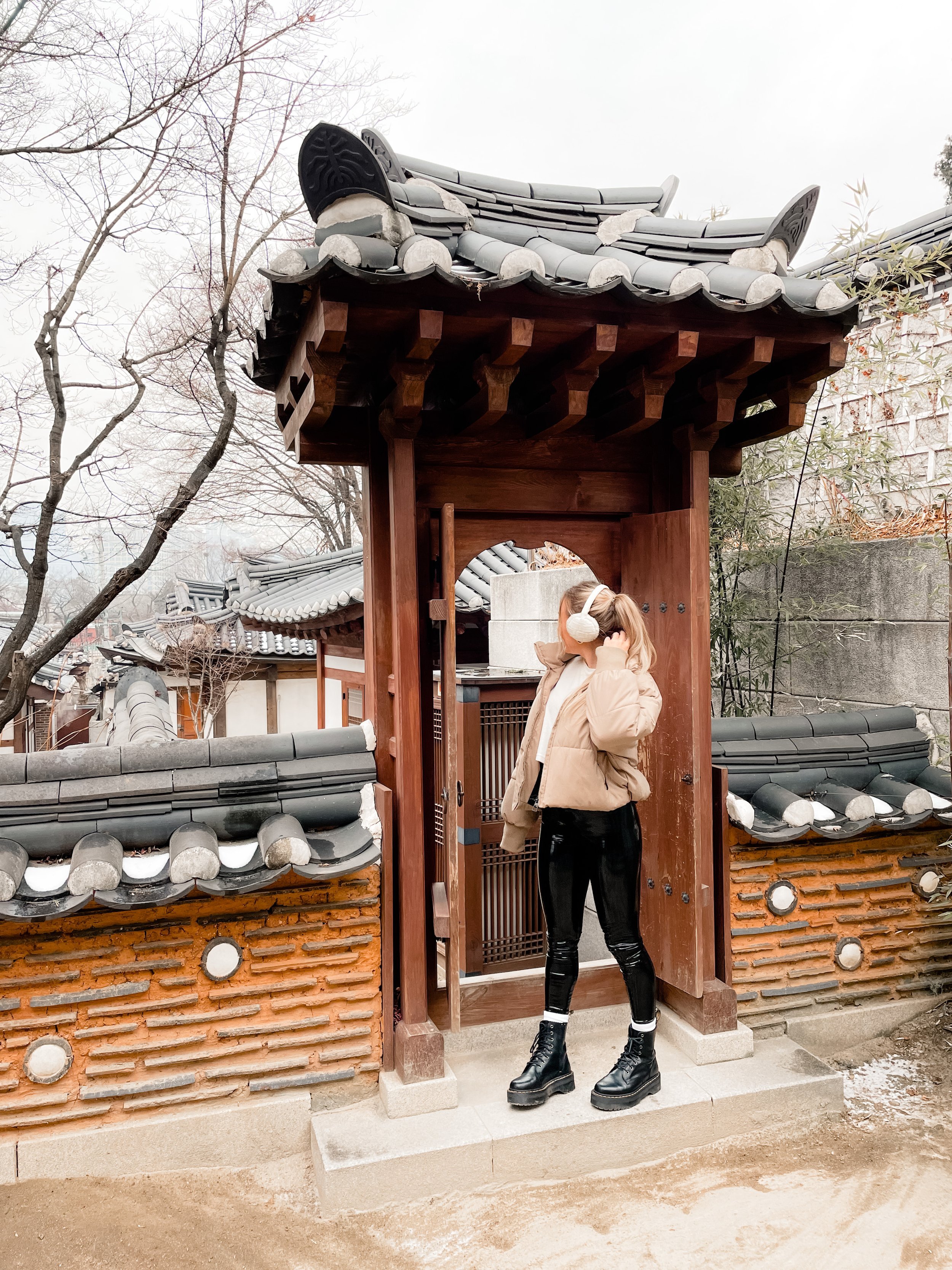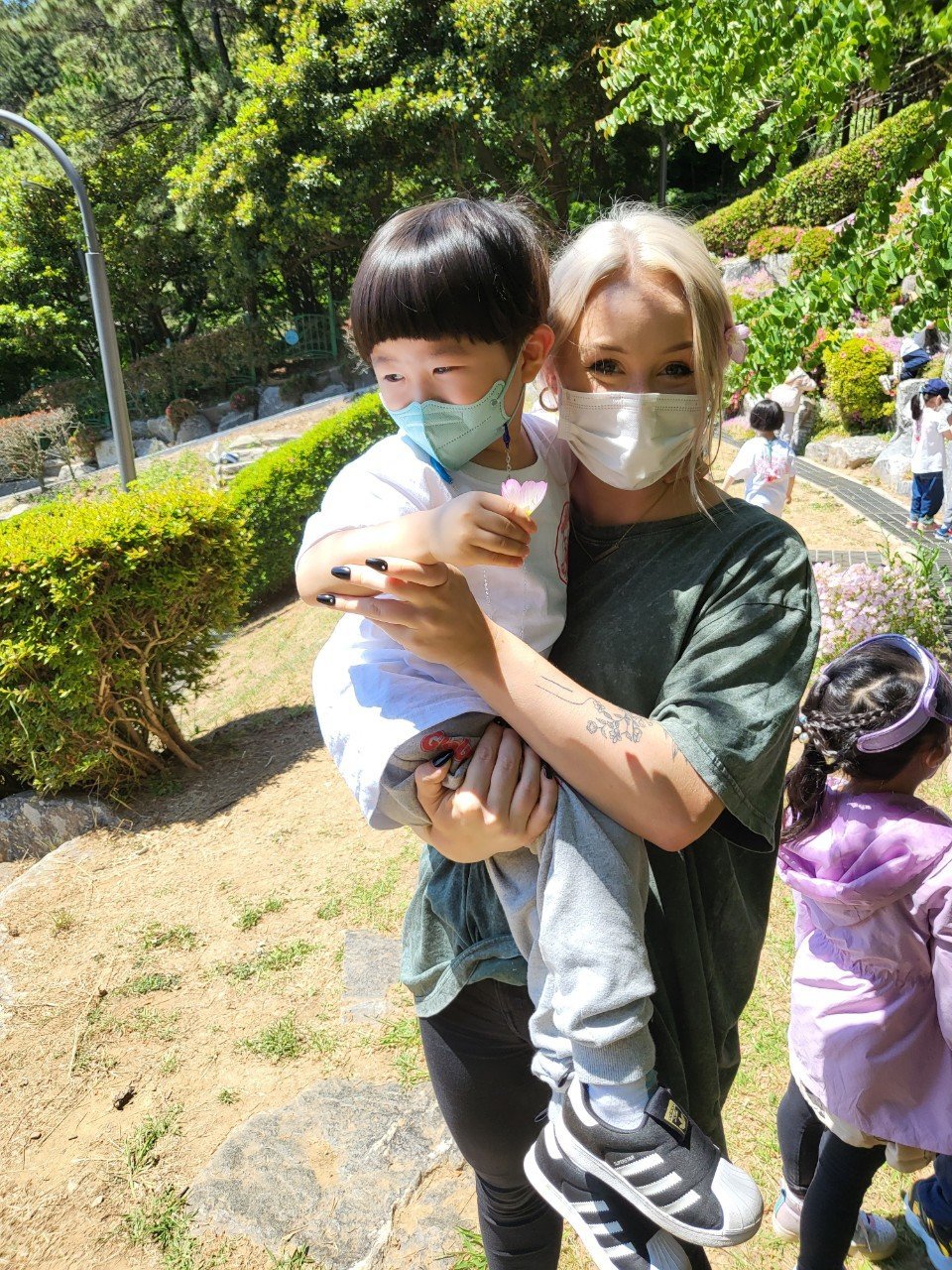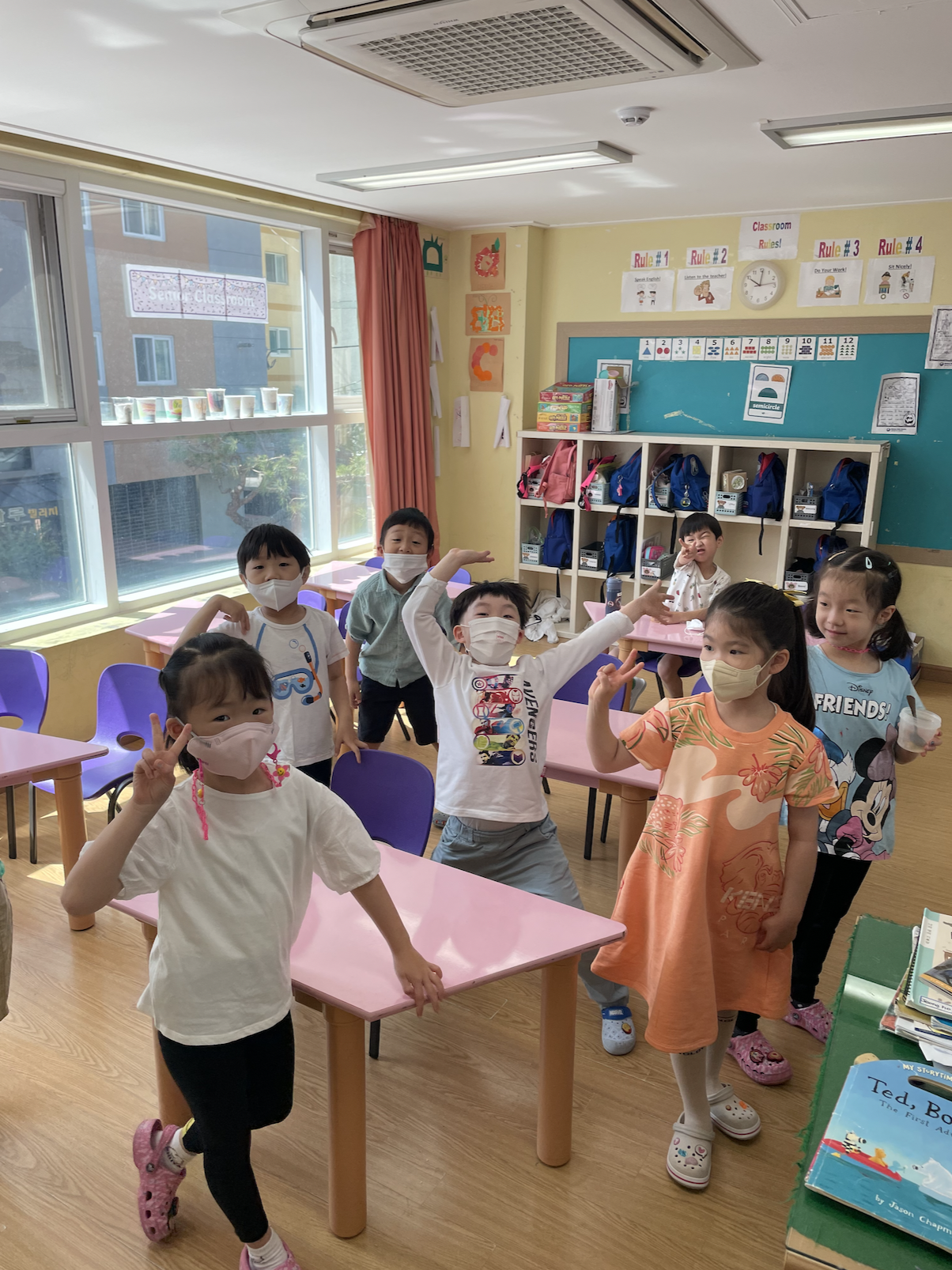Is Teaching English in South Korea Worth It in 2022?
*** Disclaimer - This post containts affiliate links, and while booking through my links adds no extra cost to you, I do receive a percentage which helps fund my travels! I’ll love you forever, so it’s a win-win situation:) ***
Since I was 14 years old, I have dreamed of teaching English in South Korea. For so long, it was the place to be! Travel the world, save money, get 6 weeks of paid vacation, live in a new and exciting country ~rent free~ - what’s not to love? It genuinely seemed like it was too good to be true! And yet so many people online were raving about their experiences and how good of a deal it actually was, so I decided to take the plunge. I found a job, packed up my bags, and headed off to find out for myself if teaching English in South Korea in 2022 is worth it or not.
Disclaimer: This post might sound very negative! Please don’t let my experience deter you from chasing your dreams and doing what you think is best for you. This is my personal experience, and I know lots of people who have had completely different experiences. Looking back, I’m frustrated at the lack of up-to-date information on the internet surrounding teaching English in South Korea, and I think it’s only fair that you know exactly what you’ll be getting yourself into, so you’re not bamboozled like I was. Xoxo
Is teaching English in South Korea worth it in 2022?
Salary
First things first: Let’s talk about the salary. Typically, whether you work in EPIK (the public school system) or in a Hagwon (the private schools), starting wage for people straight out of college is 2.1 million won. While there’s no actual solid information about this next fact, I’ve spoken to people who were here teaching in the 2000’s, and now, 20 years later, the salary has not increased one single penny. What has changed, however, is the exchange rate and the cost of living. The exchange rate has been on a steady decline for the past half a century, and even over the course of a year, I’ve watched the money I earn be worth less and less back home.
When I got here, my salary translated from 2.1 million won to about $1850 dollars. Now, ten months later, my salary translates to $1630 — and that’s not even my take home pay. While yes, my flight here was reimbursed and my apartment is paid for, I’m not saving nearly as much as I thought I would be. I gave up a job that worked out to more than double the hourly rate that I get in South Korea, and although the cost of living here is still significantly cheaper than back home, I definitely would’ve been paying my student loans back much faster and saving much more if I had stayed home.
Additionally, the amount of work you do for this tiny salary is insane. I personally work 45 hours a week, and the majority of those are teaching. I work at a kindergarten, and 45 hours a week with kids under the age of 7 is absolutely draining. My kids are freaking adorable and I love them like they’re my own children, but when I step back and look at it from a distance, I’m definitely getting exploited.
Is teaching English in South Korea in 2022 worth the salary? Absolutely not.
Work Culture
Now when it comes to work culture, it obviously varies from school to school. Since I work in a Hagwon, I also can’t speak for the EPIK experience, but working in a Hagwon is the most stressful thing in the world. I never have another teacher in the classroom with me the way EPIK teachers do. My work hours are 9-6, but I have lots of friends who work 3-10 and aren’t allowed to eat dinner, or even sit down. Multiple friends, although they have vacation time in their contracts, never got vacation time actually approved. I had a friend get banned from drinking water because it meant she had to take her mask off! My employer discourages us from being friends with our co-workers, and it’s very apparent that the school is run solely for profit, not for the best learning environment for the children.
Once again I feel like I have to say that I’m literally in love with the kids at my school, and I get paid on time, they’ve never kept me in school when I’m supposed to be on vacation, so as far as legality goes I’m fine, but I’m just worked to the bone and don’t love the work environment.
Read More: How to teach English in South Korea
Vacation time
Initially, I was dead set on getting into the EPIK program, as they recently increased the vacation days to 26 days throughout the year - not including bank holidays. I definitely thought I was going to be able to explore Asia with all those vacation days! When I didn’t get in, however, I wasn’t too pressed, as the two week quarantine for South Korea was still in place, and stayed in place until 10 months after I got into the country. Because I knew I wasn’t going to be able to explore Asia anyways, I happily signed on with a Hagwon in the city that I wanted to be in - Busan.
My thought process was that if I was by the beach, in a fun city with lots of things to do, I wouldn’t even mind the lack of vacation days, because I couldn’t leave the country anyways! And I was right - it was an amazing decision.
Especially because now, EPIK just made an announcement two months ago that they will be decreasing their vacation days to a mere 11 - which is about what you’ll get from any Hagwon. Because EPIK places you in Korea randomly, that’s now the same amount of vacation days as a Hagwon where you can choose where you work - except you could be placed in a tiny rural city and only have 11 days throughout the year to explore the rest of South Korea.
So while teaching English in South Korea a few years ago was an amazing way to see this part of the world - it just isn’t anymore. You can do what I’m doing, and save up a big lump sum to do a big trip at the end of my contract, but it’s really just not feasible to do it during your teaching contract anymore.
******* Note: From what I understand, you’re only allowed to take 11 days during your EPIK contract, but you will get paid for the other 15 days at the end of your contract? So you’ll still get paid for the 26 days of vacation but for some reason there’s now a limit on how much you can actually take off.
So: is teaching English in South Korea worth the vacation time you get off? Unfortunately, it’s gonna be another resounding no from me.
Cost of Living
Just like everywhere else in the world, the cost of living in South Korea has increased in the past few years, although the salary, as mentioned previously, has not. While schools generally pay for your apartment, you still have to pay utilities, which can be really expensive especially if you’re in a high rise building. I only pay $50 a month for my building fee, but my friend pays $150, and that’s not even including gas or water.
Grocery shopping is extremely expensive, especially if you’re not cooking typical Korean food every day. I love me some fruits and vegetables, but eating healthy here impossible unless you have a really thick wallet. Buying produce and dairy here is actually daylight robbery: a single bunch of grapes runs for about $9, while 10 eggs are about $5. Three apples could run you $12 and a watermelon is literally $20. I only splurge on cheese like once every three months.
Some people counteract this by saying it’s way cheaper to eat out - but I find a typical meal to run anywhere from $10-$17 dollars, so I wouldn’t necessarily say that’s true anymore, especially if you live in a bigger city. I would say that nights out here will run you far less than somewhere like America or the UK, but that’s about the only significant difference I can think of besides the insanely cheap prices of healthcare here! But that’s not something you’ll see the effect of every day.
Transportation is really cheap, and I managed to find a gym membership for fairly cheap, although all the other options around me in the city are upwards of $100 dollars a month. Back home, I pay $20 a month for a massive gym with tanning beds and classes and the works, while here I pay $60 for a tiny gym with minimal equipment.
Read More: 10 Things I hate about life in South Korea
Adventures
Although my work experience has been a little bit of a let-down, the adventures that I’ve had in Korea are anything but. I would like to disclaim that this is entirely up to the effort you put into making your experience amazing, as I’ve known tons of people who didn’t put effort into making the most of their time and ended up skipping out on their contracts because they simply weren’t enjoying themselves.
For me, my first priority was finding an amazing group of friends, which I 1000% accomplished. I put lots of effort into finding my people and I can confidently say that they are some of the best friends I’ve ever had in my life, and having them by my side alone has made this experience worth it for me.
We all have similar gripes with our teaching jobs, but through it have formed a collective mindset that we will use our weekends and holidays to more than make up for the less than spectacular work weeks. Together, we have done an insane amount of things throughout Korea, and despite not being able to leave the country for nearly the entire year, managed to have some crazy adventures within South Korea. We’ve had crazy amounts of fun frolicking through the country together, but equal amounts of crying on someone’s apartment floor on Sunday nights, dreading the workweek ahead of us.
So is teaching English in South Korea worth the adventures that you’ll have? Absolutely, if you’re willing to put in effort to make those adventures happen.
Read More: 10 Things I love about South Korea
Overall Experience
While this may sound like a very negative article, I don’t regret my decision to come to teach in South Korea at all. I have absolutely no regrets, I just wish there was some more updated information on the internet so that I don’t feel like I’ve been sold a lie. Coming to South Korea won’t make you rich, you won’t be able to create a huge nest egg of savings, and you really won’t be able to fully see Asia in the way that I know you want to.
It has, however, given me the opportunity to live in another country and experience their culture and learn some of their language. My confidence in my own independence has increased significantly, I have gained irreplaceable friendships. It’s given me the opportunity to explore one country in Asia, and while that’s not as many as I anticipated, I’ve loved every piece of Korea that I’ve been privileged enough to see. I’ve been absolutely drowned in love from my kiddos, and I’ve saved up enough for me to travel 3-4 months after my contract ends, which more than makes up for the lack of vacation days that I’ve had within the last year. I eat Korean Barbecue every week, and honestly, what more could you want??
Additionally, my priority after graduating college was to have opportunities to create content for this blog and eventually turn it into a full time job. Living in Korea has given me so many blog post opportunities, it has given people valuable information about how to teach English in South Korea, as well as tips for life here as well as simple vacation itineraries. I’ve been able to answer questions, give advice, help other people realize their dreams of teaching in Korea, and even made friends through this blog. So for that alone and the growth that it has given me over here at Emma’s Daydream, teaching English in South Korea was worth it for me and my aspirations.
So: Is Teaching English in South Korea Worth it in 2022?
The answer depends on what you’re looking for out of the experience.
If you love to travel and experience new cultures, but also have student debt back home that prohibits you from traveling, getting a job in another country is a really quick fix. It obviously doesn’t have the same thrill as traveling, as it becomes your everyday routine, but it does get you closer to a different part of the world and there are still fabulous experiences to be had on the weekends.
If you’re looking to save up a huge chunk, or even find a career, I personally don’t think that it’s the experience for you. In my mind, you can do anything for a year, no matter how challenging, but at my school there’s just no way I’d last longer than a year. And while I’ve saved up enough to do a lot of traveling at the end of my contract, it is in no way equal to what others say that they’ve been able to save, due to the increase in inflation as well as the cost of living, and the decrease in the exchange rate.
In the spirit of full transparency, I’ll leave South Korea with around $13,000, when initially I thought it would be more towards $15,000. Oh, and to put the cherry on top, I arrived in Korea with about 10k in the bank at home, all of which is now gone LOL
.
There’s really not a huge difference in the money made or lost, if you choose to look at it like that, so for you to decide on whether or not teaching English in South Korea is up to your sense of adventure and your priorities.
I have no regrets, I just don’t want you to get blindsided by the dream that a lot of people on the internet are selling you, like I was! I’m still so happy that I came, I still got everything I wanted out of the experience, even if I did have to shift travel plans around quarantine and small vacation time. I came to South Korea for a reason, and I’ve discovered that the reason was to meet the people that I did, gain these forever friendships, and to grow as a person. This has been such a hard year but also a very rewarding one, and I can confidently say that I’m a better person because of it!
I hope this helps, and if you have any questions, want me to review a potential work contract, need someone to help you weigh your pros and cons, or just speak to someone who’s gonna be completely honest about the realities of teaching here, drop me a comment or send me an email through the contact me page of the blog. I’d love to talk to you!
















My last roundup post while still living in Korea! Catch up on what I’ve gotten up to this summer: